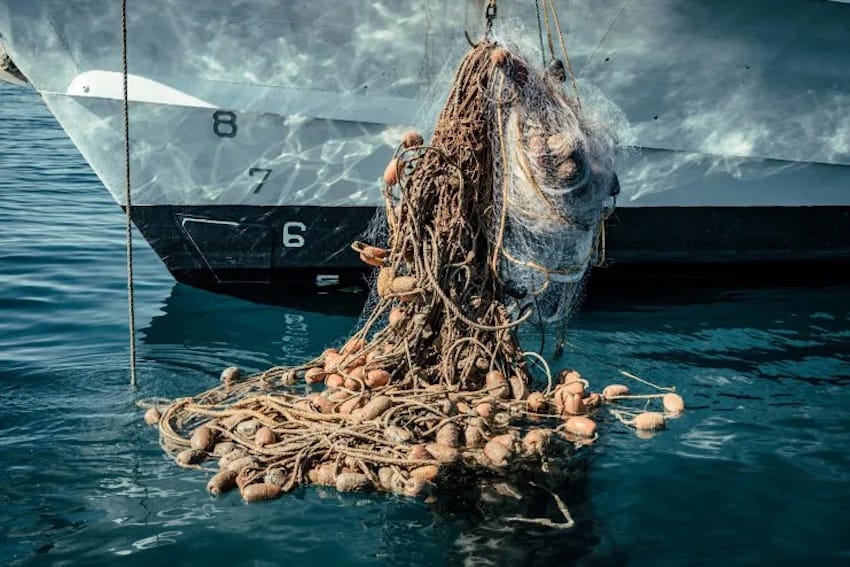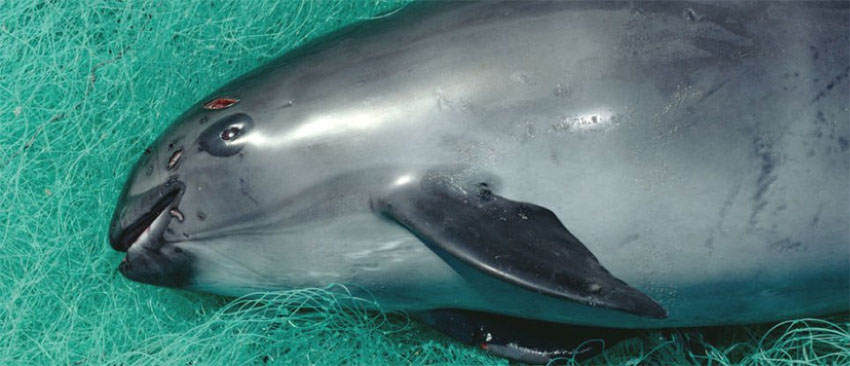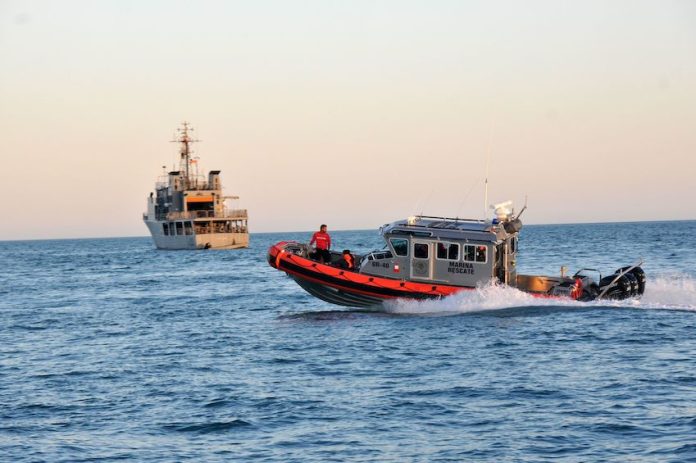Mexico’s federal Environment Ministry (Semarnat) announced on Saturday that it will expand the “zero tolerance” protection zone for the critically endangered vaquita porpoise.
Semarnat will expand the protection zone, in which fishing activity is strictly prohibited, in the upper Gulf of California. Illegal fishing for the totoaba fish, whose swim bladder is highly prized in Asia, has been blamed for the near-extinction of the vaquita.

In the “zero tolerance” zone, gillnets — used to catch the coveted totoaba fish — are permanently prohibited, as the vaquitas often die after becoming entangled in them. There are also increased patrols and oversight of fishing activity in the area surrounding the exclusion zone.
“It is estimated that illegal fishing in the zero tolerance zone has been reduced by 79%, so we propose extending this project four kilometers on two sides of the polygon adjacent to the coastline so that in October of this year, 216 cubes will be added to the 193 existing ones,” Semarnat said in a statement.
The agency also announced that sea, land and air patrols will be reinforced “during the months of September and October, corresponding to the shrimp fishing season.”
Semarnat will discuss the modifications with the fishing sector and civil society organizations, as there will be changes to embarkation and disembarkation sites and controlled schedules for fishing activity. It is also working on the construction of a community totoaba farm, which will allow for the fish to be bred and commercialized in captivity, thereby reducing incentives for illegal fishing.

In March, the Convention on International Trade in Endangered Species of Wild Fauna and Flora (CITES) sanctioned Mexico for failing to protect the vaquita, preventing member countries from trading animals and plants with the country. In April, CITES approved Mexico’s new action plan to improve vaquita protections, and revoked the sanctions.
The revised Semarnat plan includes seven points to prevent the illegal fishing of totoaba, with 34 objectives jointly presented by Semarnat, the Navy, the Foreign Ministry and the Agriculture Ministry. Measures include monitoring embarkation sites, preventing unauthorized vehicles and gillnets from entering the “zero tolerance” zone, monitoring the population of the species and strengthening the strategy to combat illegal totoaba trafficking, among other proposed actions.
In June, a joint expedition by the Mexican government and the Sea Shepherd Conservation Society non-governmental organization demonstrated that efforts to protect the vaquita appear to be working. Officials reported a 90% decrease in gillnetting and sightings of 10 and 13 vaquita specimens, including one newly born calf. In 2021, only seven of eight adult specimens and one or two calves were believed to remain.
